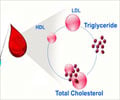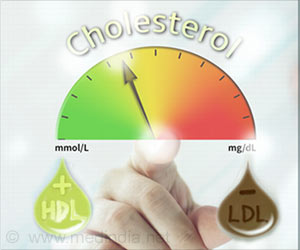Endocrine Society has updated its guidelines which state strict lipid profile monitoring has to be done in all types of endocrine disorders.

‘Endocrine diseases possess a greater cardiovascular risk for patients. Endocrine Society’s new guidelines recommend checking the lipid profile of patients with endocrine disorders, so that the cardiovascular risk can be calculated.’





Usually, the focus is on treatment and assessment of endocrine disorders, but it is also important to assess the atherosclerotic (build-up of fats, cholesterol, and other substances in and on the artery walls) cardiovascular disease risk and treat it appropriately. Diabetes is popularly known for its increased cardiovascular risk profile. Hence lipid profile is done regularly in diabetic patients. The new guidelines state that lipid profile monitoring is equally important in all the other endocrine diseases too. The Endocrine Society previously had no specific guidelines on lipid management in endocrine disorders.
All endocrine disorders carry a host of cardiovascular risk factors that require strict and careful monitoring. The recent guidelines suggest adding EPA (eicosapentaenoic acid ethyl ester) in adults with endocrine disorders to reduce the risk of cardiovascular disorders. In many patients, it is observed that if the underlying endocrine disorder is treated appropriately, dyslipidemia is resolved automatically.
The guidelines published in the Journal Of Clinical Endocrinology & Metabolism mention about the risk factors and evidence based recommendations for management & treatment. The key recommendations are as follows:
- Obtain a lipid profile panel and evaluate the cardiovascular risk factors in all adults with endocrine disease.
- Patients with type II diabetes & possessing risk factors for cardiovascular disease should be started on statin therapy (lipid lowering agent). The patients should also be advised lifestyle modifications so as to reduce cardiovascular risk.
- Patients with hyperlipidemia (abnormally high concentration of fats or lipids in the blood), should be prescribed a thyroid profile so that hypothyroidism can be ruled out. If hypothyroidism is ruled out the patients should be started on a lipid lowering agent. If the thyroid profile suggests hypothyroidism then the lipid profile should be revaluated when the levels of the thyroid hormone of the patients are back in the normal range.
- Patients with endogenous Cushing’s Syndrome should have their lipid profile monitored regularly. Statin (lipid lowering agent) therapy to be started & patients must be advised lifestyle modifications, irrespective of the cardiovascular risk score.
- In post-menopausal women the high cholesterol levels should be treated with statins rather than hormone therapy.














